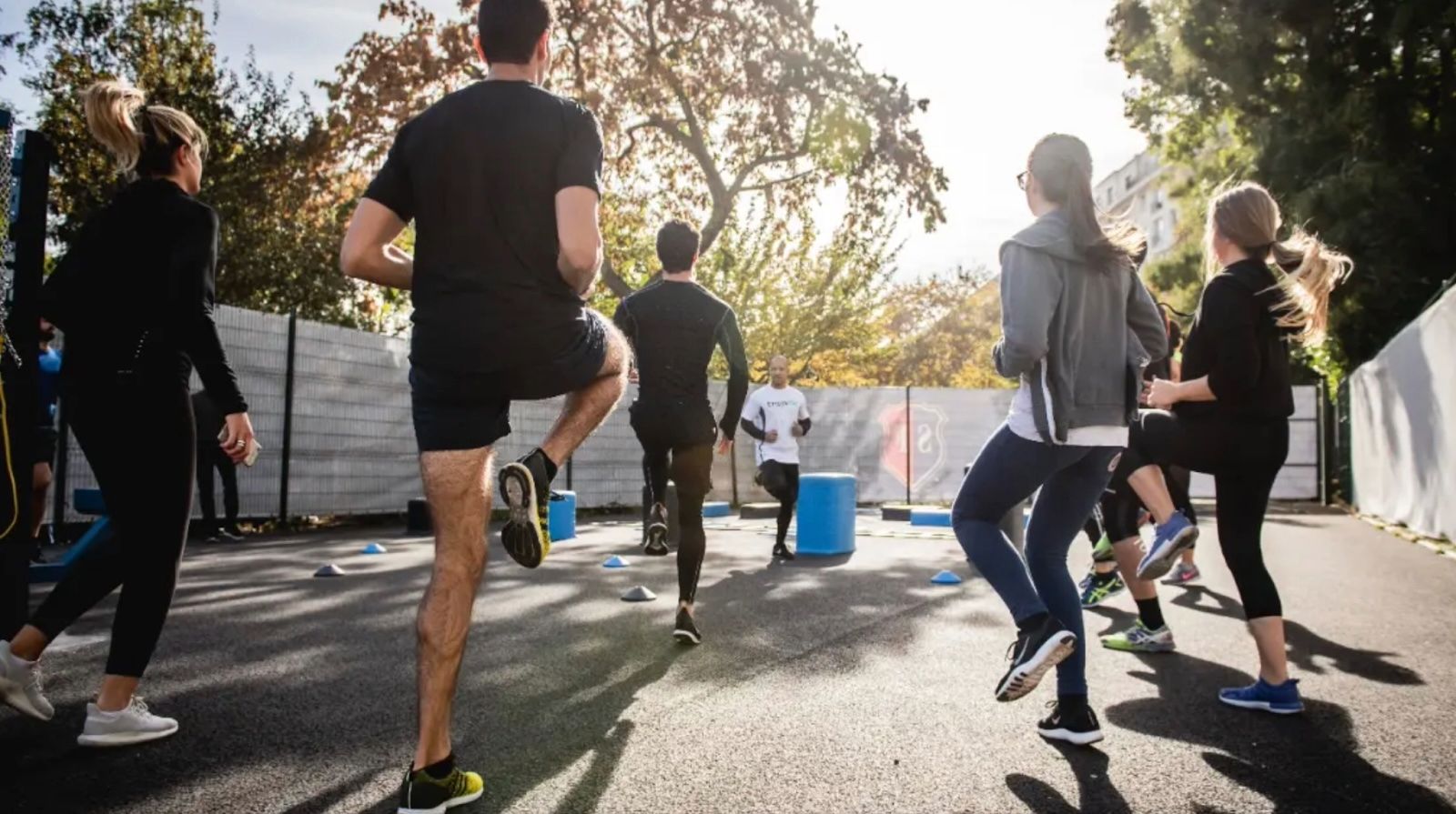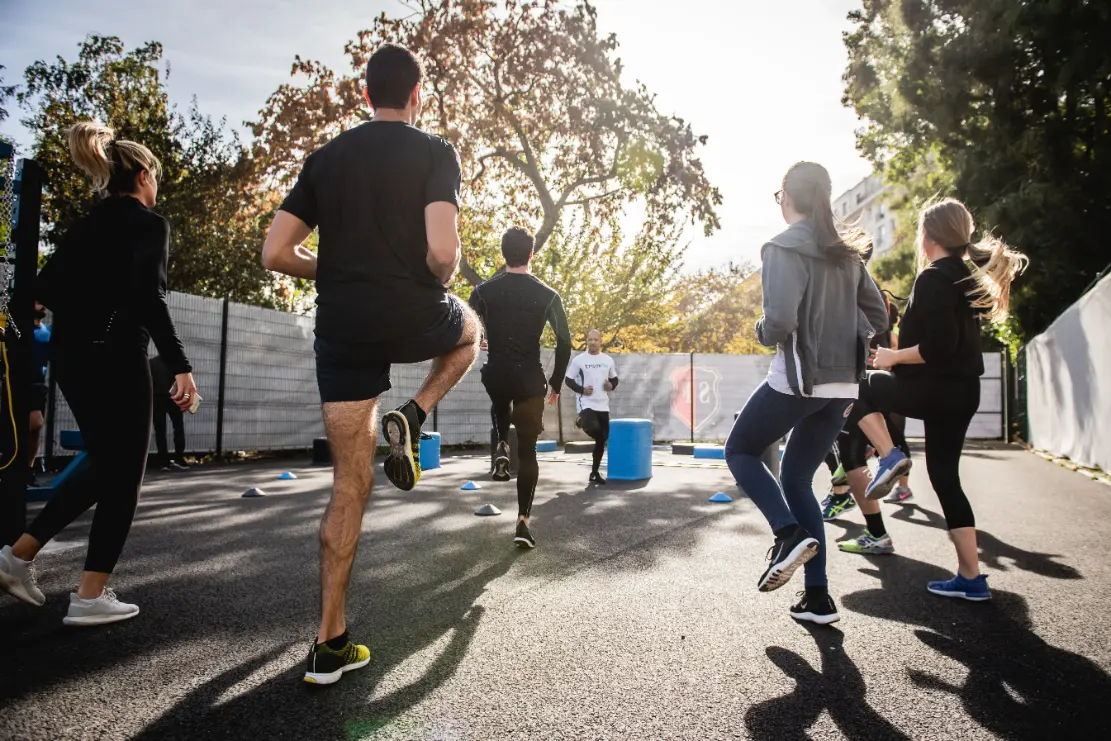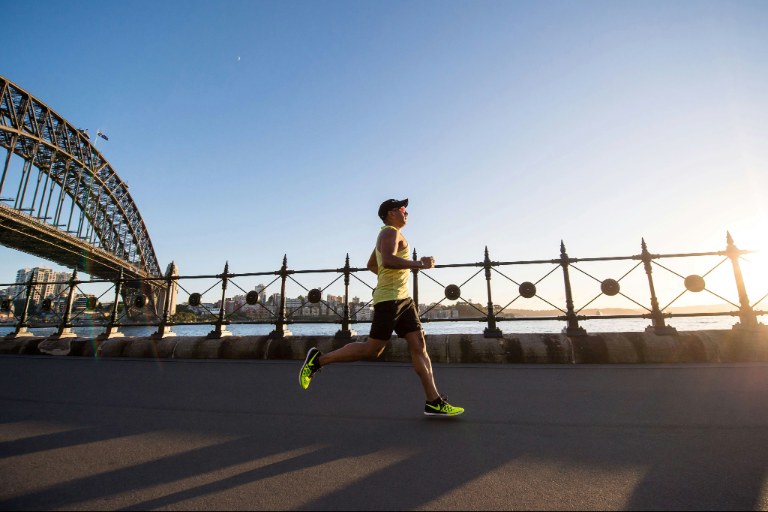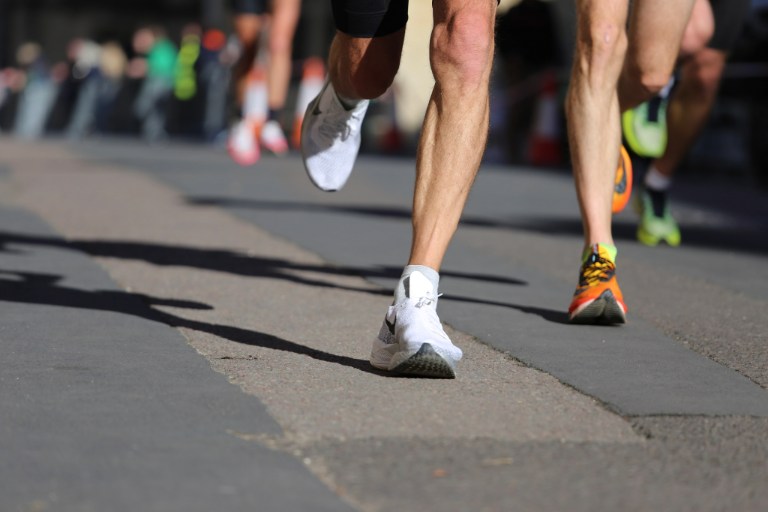How to Run a 19-minute 5K: The Ultimate Guide to Breaking 19 Minutes
Starting your running journey should feel exciting, not overwhelming. Our training plans give you the structure, support, and flexibility you need to go from your first step to running 5k, no matter your starting point.

For many runners, a 19-minute 5K is a real statement of speed and fitness. Hitting this time means you’ve gone beyond just solid endurance and have built the strength, pace, and mental grit needed to compete at a high level in local races. It’s a benchmark that shows you’ve been consistent in training and have learned how to balance both mileage and faster sessions.
That said, this goal doesn’t come easy. It’s not something you can just “wing” on race day. To run at this pace, you need targeted training, smart pacing, and the confidence to hold a fast rhythm even when fatigue starts to bite. The good news is that with the right preparation and focus, this is an achievable goal for many runners who’ve already built a strong base.
In this full guide, you’ll get everything you need to take on the 19-minute challenge:
- Exact target paces and splits so you know what to aim for every kilometre.
- Fitness benchmarks to help you check if you’re ready for the training load.
- A proven training plan with the key sessions to build your endurance and sharpen your speed.
- Race-day strategies to keep you on pace and finish strong.
- Expert tips and insights from athletes and coaches who know what it takes to break 19.
This isn’t about guesswork. It’s about following proven principles so you can run your fastest 5K yet and enjoy the journey along the way.
Ready? Let’s go chase that 19-minute mark!
What Does It Take to Run a 19-minute 5K?

To finish 5K in 19 minutes, you need to lock into a pace of 6 minutes 7 seconds per mile, or about 3 minutes 48 seconds per kilometre. That’s the target - every split, every kilometre, steady and controlled.
Put another way, you’ll need to cover each kilometre in just under 3:50.
On paper it looks straightforward, but when your breathing gets sharp and fatigue builds, sticking to that rhythm takes more than raw leg speed. It calls for a blend of aerobic strength, confidence in your pacing, and the mental toughness to push through discomfort.
Who is this goal realistic for?
If you’re currently running 5Ks in the 19:30–20:30 range, then you’re in striking distance with focused training. You’ve already built endurance, but to hit 19 minutes you’ll need to refine your speed endurance, improve your lactate threshold, and get comfortable sustaining pace that feels fast but controlled.
Even if your PB is a little outside that window, don’t rule it out. With consistent mileage and the right mix of sessions, plenty of runners surprise themselves by adapting quickly to the demands of sub-3:50 per km pacing. With discipline and smart preparation, that intimidating number on the clock can become your new reality.
Are You Ready for a 19-minute 5K?
Before setting your sights on 19 minutes, it helps to know whether your current fitness lines up with the demands of running 3:48 per kilometre. Jumping into workouts that are too tough too soon risks setbacks, so use these checks to see if you’re ready.
Benchmark Sessions
1. The 3 x 1K Test
- Find a track or a reliably measured stretch of road and run three 1K repeats with 2–3 minutes of jogging or walking recovery.
- Target pace: around 3:45–3:50 per kilometre.
If you can hold that pace for all three reps without fading – and still feel like one or two more were possible – you’re on the right track for a 19-minute race.
2. The 1-Mile Time Trial
- Another option is a single hard mile effort. Warm up properly, then run one mile at a strong but controlled effort.
- If you can run close to 5:45–5:55 for the mile and feel like you could extend it with more training, it’s a good sign you’re ready to build toward 19.
Both tests give you a quick snapshot of whether you have the blend of speed and endurance needed, or if you’d benefit from more foundational work first.
Check Your Weekly Mileage Base
Intervals alone won’t carry you to 19 minutes. You need an aerobic base to handle harder workouts, recover quickly, and maintain form in the later stages of the race.
As a guideline:
- You should already be running 35–45 km (22–28 miles) per week consistently for at least a month.
- If your volume is lower, focus first on gradually increasing mileage while keeping most runs easy. Add in strides or short pickups to build leg turnover, then progress toward structured intervals once you’re comfortable.
A solid base plus smart quality sessions is what sets you up to thrive in the final kilometres instead of hanging on for survival.
Key Training Principles
Chasing a 19-minute 5K requires more than just raw leg speed. You’ll need the right mix of endurance, structured workouts, and discipline to hold pace when fatigue sets in. Here are the pillars to build into your training week:
1. Build Mileage Gradually
A strong aerobic base is what keeps you going when the pace starts to bite. It also helps you recover between harder workouts.
- Aim for 35–50 km (22–31 miles) per week if you’re training for this goal.
- Increase your volume carefully, no more than 10% at a time.
Keep the majority of runs at an easy, conversational pace to avoid burnout.

2. Include Intervals
Intervals get you comfortable running at faster speeds and help train your body to manage lactate.
- Sessions like 6 x 800m at race pace, 12 x 400m slightly quicker than race pace, or 4–5 x 1K at goal pace are excellent.
- Always start with a proper warm-up, and jog or walk between efforts for recovery.
- One focused interval workout per week is enough for most runners.

3. Add Tempo Runs
Threshold running builds the strength to sustain a hard pace without breaking down.
- Run at about 85–90% effort, which will feel “comfortably hard.”
- For this goal, that means targeting around 3:55–4:00 per km.
- Begin with 20 minutes at tempo and extend as your fitness grows.

4. Make the Long Run Count
Even though 5K is short, a weekly long run is essential. It builds endurance, strengthens your legs, and helps with overall efficiency.
- Aim for 75–90 minutes of steady, easy running.
- Think of it as time on your feet rather than distance covered.

5. Strength and Mobility Work
A balanced body runs more efficiently and is less prone to injury.
- Prioritise core, glute, and single-leg exercises to improve stability and power.
- Mobility work for hips, calves, and hamstrings helps keep your stride smooth.
- Two short sessions a week, even 15–20 minutes at home, can make a noticeable difference.

Pacing & Race-Day Strategy
As you step onto the start line, your plan matters just as much as your fitness - and the right pacing strategy can carry you all the way to a 19-minute breakthrough. Here's how to set it up:
1. Warm Up the Right Way
To hit your splits from the very first step, you need to prime your body.
- Start with 10–15 minutes of easy jogging to raise your heart rate and loosen your muscles.
- Follow with dynamic drills like leg swings, lunges, and skips to get your range of motion working.
- Finish with 4–5 strides around race pace or slightly quicker to wake up your legs and sharpen your turnover.
By the time you’re on the start line, you should feel springy, focused, and ready to lock into rhythm.

2. Open Smoothly
The adrenaline of race day can trick you into sprinting, but going out too hard is the quickest way to blow your 19-minute effort.
- Lock into your target pace of 3:48 per km (6:07 per mile).
- The first kilometre should feel strong but under control, almost like you’re holding a little back.
- If it feels too easy, that’s exactly where you want to be.

3. Stay Composed in the Middle
The second and third kilometres are where doubts creep in. This is where staying calm matters most.
- Keep your form tall with relaxed shoulders and fast, light steps.
- Focus on hitting each split rather than the whole distance.
If possible, tuck in with another runner moving at your pace and work together.

4. Close with Purpose
Once you pass the 4K mark, the race becomes a test of grit.
- Tell yourself you only have about four minutes of running left – you can handle that.
- As you near the final 400m, pick a marker ahead and gradually increase your effort.
- Empty the tank in the last straight, driving your arms and keeping your eyes on the finish clock.
Every second matters here, and the way you finish often decides whether you dip under 19 minutes.

Mental Tips for Breaking 19

Running a 19-minute 5K is as much about mindset as it is about fitness. Your body will follow the training you’ve put in, but it’s your mental game that decides whether you hold pace or let it slip. Here’s how to build focus and toughness for the big effort:
Break the Race Into Sections
Thinking about the entire distance at once can feel overwhelming. Instead, divide it into five manageable kilometres:
- 1K: Settle quickly into rhythm. Keep things relaxed and smooth.
- 2K: Lock in. Stay steady and don’t let excitement pull you faster than target pace.
- 3K: Concentrate. This is often where doubts creep in, so remind yourself you’re prepared.
- 4K: Dig deep. This kilometre hurts for everyone, so stay mentally strong.
- 5K: Empty the tank. Push for the line knowing you’ve only got a few minutes left.
Use Short, Positive Mantras
Repeating a simple phrase can drown out negative chatter and keep your stride strong. Try mantras like:
- “Smooth and fast.”
- “Stay strong.”
- “One more step.”
Stay Connected to Your Breathing
When your legs feel heavy, focusing on controlled breathing helps you stay calm and efficient. Use a rhythm like in for two steps, out for two. This keeps your form relaxed and prevents you from tightening up.
Visualise Your Finish
During training, take a moment to picture yourself running confidently on race day. Imagine hitting your splits, powering through the tough middle, and driving for the finish clock reading 19:xx. Building this mental picture ahead of time makes it easier to push through when things get tough.
Nutrition & Gear for a 19-minute 5K

When you’re aiming for a 19-minute 5K, the little details start to matter. What you eat, drink, and wear won’t suddenly make you faster, but the wrong choices can slow you down. Keep things simple and familiar so all of your focus stays on running strong.
The Night Before
Think of dinner as topping up your fuel tank. A balanced, carb-focused meal like pasta, rice, or potatoes with some lean protein works best.
- Keep portions sensible so you’re not going to bed uncomfortably full.
- Hydrate steadily throughout the day, but avoid downing large amounts of water right before sleep.
Race Morning
Breakfast should be light, easy to digest, and something your stomach already knows. Good options include:
- A banana
- Toast with a little honey or jam
- A small bowl of cereal or porridge
Eat about 2–3 hours before the start if you can, and sip water gradually up to the race. Avoid anything greasy, spicy, or new on race day.
Gear: Stick With What You Trust
The best kit is the kit you’ve tested in training. Choose lightweight shoes that feel responsive, but only if you’ve already broken them in. Don’t risk blisters or discomfort with brand-new shoes or clothes.
- Check the weather so you’re dressed appropriately.
- Wear layers for your warm-up but strip down to your race gear before the start.
Confidence comes from knowing your nutrition and gear won’t distract you. That way, all your energy goes into hitting pace and pushing for that 19 minute finish.
Frequently Asked Questions
Yes! A 19-minute 5K is an excellent time that puts you well above average at most local races. It shows you’ve developed both strong speed and endurance, and it’s often a stepping stone toward competitive age-group results.
Is a 19-minute 5K good?
Yes! A 19-minute 5K is an excellent time that puts you well above average at most local races. It shows you’ve developed both strong speed and endurance, and it’s often a stepping stone toward competitive age-group results.
How long does it take to train for a 19-minute 5K?
For many runners sitting around the 20:30–21:00 range, consistent training over 12–20 weeks can be enough to reach 19 minutes. If you’re further off, expect it to take longer while you build endurance and speed.
What pace is a 19-minute 5K?
You’ll need to average about 6:07 per mile or 3:48 per kilometre to finish in 19 minutes. That’s a pace that requires both sharp interval work and a solid aerobic base.
Do I need to run every day to hit 19 minutes?
Not at all. Most runners can improve with 4–5 runs per week, mixing easy mileage, one interval session, a tempo run, and a weekly long run. Rest and recovery are just as important as the hard workouts.
What kind of races can a 19-minute 5K prepare me for?
If you can run 19 minutes for 5K, you’re well-positioned to chase sub-40 in the 10K, and even competitive half marathon times. It’s a strong indicator that your running has moved beyond intermediate into a more advanced level.

